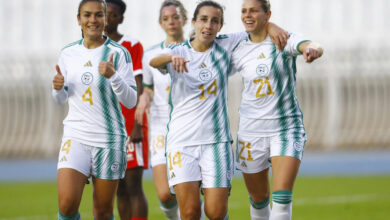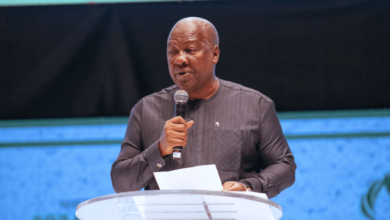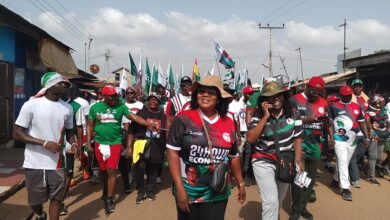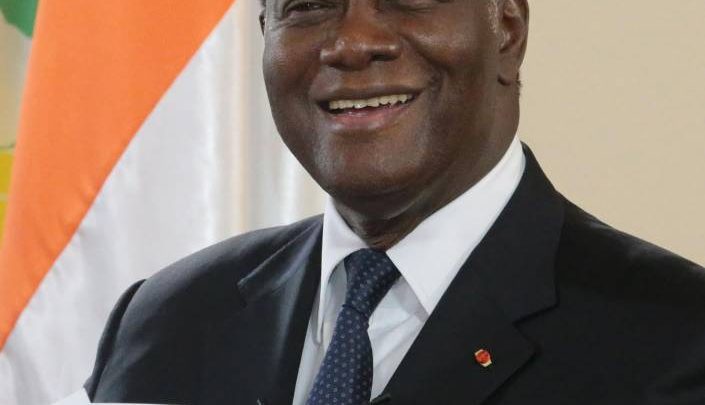
Ivory Coast President Alassane Ouattara on Tuesday won support from West African bloc ECOWAS for his reelection to a third term after an October 31 vote marked by clashes and an opposition boycott.
Ouattara secured the election by more than 94 percent, but Ivory Coast is mired in a standoff after opposition leaders rejected the vote, accusing him of breaching the two-term presidential limits.
Tensions have stirred trauma over disputed elections in 2010 that unleashed a brief civil war in the West African country, claiming around 3,000 lives.
ECOWAS “sends the elected president its warm congratulations” and “its sincere wishes for success”, a statement from the 15-member bloc said, urging Ouattara to bring Ivorians together after unrest over the election killed around 50 people since August.
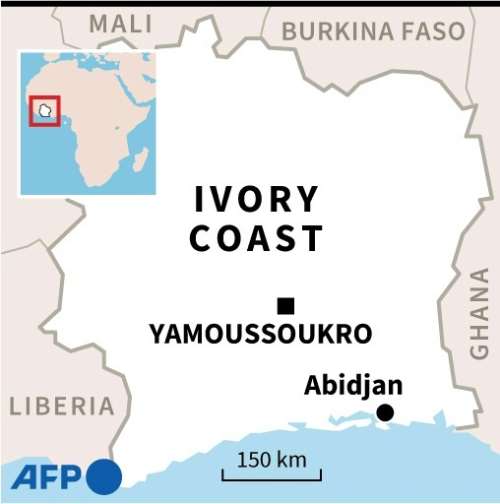 Map of Ivory Coast. By Laurence SAUBADU (AFP)
Map of Ivory Coast. By Laurence SAUBADU (AFP)
The country’s top court on Monday validated Ouattara’s victory, but new clashes between rival ethnic communities over the election killed at least ten people.
More than 8,000 Ivorians have also fled to neighbouring countries, fearing violence linked to the election, the UN refugee agency said on Tuesday.
Ouattara has urged chief rival Henri Konan Bedie to drop the protests and hold talks to defuse the crisis.
“I will be the president for all Ivorians,” he said in a national broadcast on Monday evening.
There has been no official response from the main opposition party PDCI or its chief Bedie, an 86-year-old former president.
Bedie’s Abidjan home is still blockaded by security forces. Two other opposition chiefs have been arrested for suspected insurrection after rejecting the ballot and announcing a rival government.
But one opposition representative maintained a hardline.
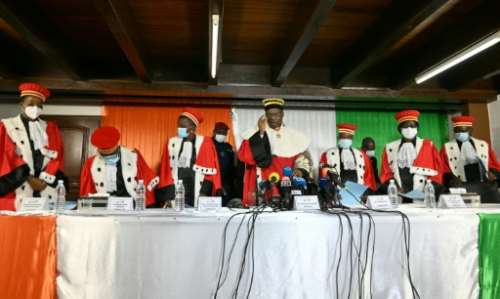 Ivory Coast’s top court has validated President Ouattara’s relection to a third term. By Issouf SANOGO (AFP)
Ivory Coast’s top court has validated President Ouattara’s relection to a third term. By Issouf SANOGO (AFP)
“We do not recognize the election. We all know he (Ouattara) violated the constitution,” said N’Goran Djiedri, leader of one of the PDCI’s wings.
“Yes to dialogue, but the rule of law must be respected.”
Face-to-face talks
ECOWAS urged “all Ivorians to put peace and social cohesion above all and seek to resolve their differences through dialogue and legal channels”.
The UN, EU and African Union have all urged talks to stop tensions worsening in Ivory Coast, francophone West Africa’s largest economy and a business hub.
Western diplomats and government sources say talks are ongoing with both sides, though no solid progress has been made so far.
“Bedie and Ouattara could see each other and be seen with each other, to take the tensions down a level,” one Western diplomat said.
“The real discussion needs to happen between these two.”
The bitter rivalry between Ouattara and Bedie has marked Ivorian politics for decades along with ethnic and regional loyalties.
In power since 2010, Ouattara had said that at the end of his second term he would make way for the next generation, raising hopes for an end to the long-running feuds.
But the sudden death of his chosen successor in July prompted a change of mind.
His bid angered opposition chiefs, stoking tensions over a possible post-election crisis similar to one in 2010-11 when then-president Laurent Gbagbo refused to accept defeat by Ouattara.
The country was already divided in two after a civil war — the north held by rebels and the south by Gbagbo’s forces.
Ouattara won a long-delayed 2010 election, but Gbagbo refused to step down. French troops eventually intervened and Ouattara loyalists were able to oust Gbagbo.

